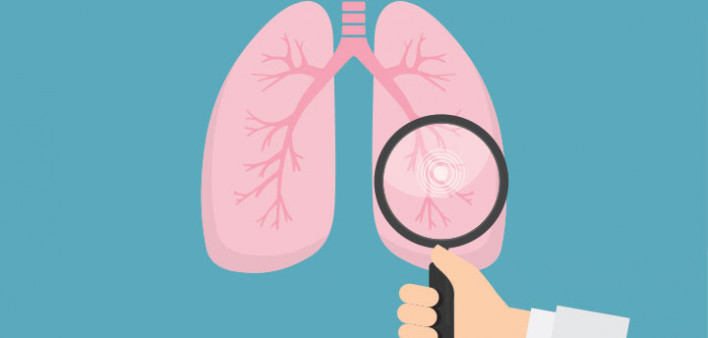Among people younger than 50, having HIV is associated with a faster rate of lung function decline, aidsmap reports. Having ever had a CD4 count below 200 was also associated with steeper decrease in lung function in a recent large, long-term study.
Jing Sun, MD, of the Johns Hopkins Bloomberg School of Public Health, presented findings from the SHIELD study of 2,216 people (1,048 had HIV and 1,168 did not) at the 2020 Conference on Retroviruses and Opportunistic Infections in Boston earlier this month. Between 2009 and 2017, the participants received lung function tests semiannually.
The participants had a median age of 50 years old. Two thirds were men, and 85% were Black.
Seventy-two percent of the HIV-positive people were current smokers who had smoked for an average of 17 years by the time they entered the study. Among the HIV-negative people, 85% were current smokers who had smoked for a median of 20 years.
The study measured lung function with tests known as FEV1 and FVC, which measure the maximum amount of air a person can exhale. Upon entering the study, the HIV-positive people had a median FEV1 of 2.59 liters, compared with 2.84 liters among the HIV-negative individuals. The two groups had an FVC of 3.46 and 3.79 liters, respectively.
Among those younger than 50, people with HIV experienced faster decline in their FEV1 compared with those who did not have the virus—a respective decline of 46 milliliters per year and 32 ml per year. There was no such difference in the rate of decline based on HIV status in the participants older than 50.
Among people with HIV, having had a lowest-ever CD4 count below 200 was associated with faster lung function decline, compared with having had a lowest-ever CD4 count above that point.
Based on these findings, the researchers concluded that early HIV diagnosis and initiative of antiretroviral treatment would help mitigate the long-term decline in lung function.
To read the aidsmap article, click here.







Comments
Comments